Internal Medicine Residency
Primary Care Program
Contact Us
Department of Medicine
55 Fruit Street
Boston,
MA
02114
Phone: 617-643-0669
Fax: 617-724-7441
Email: mghimresidency@partners.org
Explore the Primary Care Residency
Overview
The Massachusetts General Hospital Primary Care Program aims to train excellent primary care doctors who will dedicate their careers to providing standard-setting primary care and improving health equity through a range of careers in general internal medicine as clinicians, advocates, educators, researchers and health systems leaders. We emphasize robust clinical training, high-yield ambulatory education, advocacy training and other skills to expand access to opportunities and leadership development to be an agent of change in the health system. Our program serves as a small family within the larger residency structure where residents can find individualized mentorship, professional development coaching, and a warm and supportive community as they travel the career path of their choice.
Welcome to Our Program
Welcome to the MGH Primary Care Program! We are a warm and collaborative family within the family of the broader MGH internal medicine training program. Our core mission includes offering outstanding clinical training, emphasizing skills to advance health equity, building a supportive community of learning, and supporting residents to develop individualized and sustainable careers in all aspects of primary care and ambulatory general internal medicine. MGH has been a fantastic home for me as a general internist, educator, and leader in LGBTQ+ health; I hope you, too, may find a home here in our primary care community!
 Jenny Siegel, MD
Jenny Siegel, MD
Primary Care Program Director
Welcome to the MGH Primary Care Family! As a resident in the program, I grew immensely as a physician from the structured teaching of foundational primary knowledge and skills through clinical care, experiential learning, and career development. The MGH Primary Care Program cultivates leaders in ambulatory medicine and health equity with individual careers that may take a myriad of forms. Most importantly, the people within the primary care family—from our program leadership and other faculty to our support staff and administrators to our co-residents—create an environment where one is not only learning and practicing medicine at the highest level but also finding joy and purpose in their work. We are so excited to share this program with you!
 Jade Connor Eruchalu, MD
Jade Connor Eruchalu, MD
Ambulatory Chief Resident
Primary Care Continuity Clinic Practice
The cornerstone of your primary care training is your primary care continuity clinic. In conjunction with the program director, primary care residents are assigned to a training location that aligns with their interests and developing clinical skills. These sites include the MGH community health centers in Charlestown, Chelsea, and Revere, as well as locations on the main MGH campus. Applicants who match to the primary care program have first consideration in clinic site assignments to ensure excellent fit of practice site and preceptors based on the resident's career and clinical interests.
Enhanced Primary Care Curriculum
In addition to the Internal Medicine Residency core curriculum in ambulatory medicine, primary care residents have enhanced primary care learning opportunities through:
- Retreats and Primary Care Special Sessions
Throughout the year, primary care program residents come together for two large group retreats and a wealth of special sessions that provide a unique space for residents to develop additional skills in primary care clinical medicine, advocacy, leadership, community engagement and more. These sessions include time for home visits, panel management, legislative and other advocacy efforts, book clubs, community building, and new ideas that residents generate each year. - Designer Blocks
This time is completely unscheduled with the exception of continuity clinic, and residents are free to explore learning opportunities that expose them to new mentors or skills, complete an academic project or better prepare themselves for the careers that lay ahead. - Optional Longitudinal Second Site
Primary care residents can opt to engage in one of a variety of additional continuity experiences beyond their primary care clinic. Residents have pursued second clinics in geriatrics, addiction medicine, LGBTQ+ health, mobile community care, and with Boston Healthcare for the Homeless.
Mission to Promote Health Equity
In line with our programmatic mission, we focus on exposing residents to classroom and clinical education highlighting the needs of diverse populations and the innovative programs/partnerships within Mass General to better serve them. Residents will learn about and have the opportunity to pursue additional training in:
- Addiction medicine and exposure to the MGH Bridge Clinic
- Community outreach through the Community Care Van
- Immigrant health and evaluations at the MGH Asylum Clinic
- Homeless health and street medicine through our partnership with Boston Healthcare for the Homeless
- LGBTQ+ health through the MGH Sexual Health Clinic and MGH Transgender Health Program
- Rural health through our partnership with the Rosebud Sioux Tribe in Rosebud, South Dakota
Career Development and Mentorship
Mass General Primary Care Program graduates have become leaders in academic and community-based general internal medicine as well as in public service. They pursue careers in clinical practice combined with medical education, research, health care administration, practice innovation and community leadership roles. The Mass General Primary Care Program has no one "model" for a successful career in general internal medicine. While many graduates go on to obtain additional training - for example in health services research, addiction medicine, geriatrics and health care management - others continue directly into primary care practice. Each resident is matched with a mentor based on their career goals and preferences at the start of residency, and meets several times a year with the Primary Care Program Director to be connected with additional opportunities and mentors to explore their career aspirations.
Application Process
All applications are processed through the Electronic Residency Application Services (ERAS). All interested applicants should select the Mass General Primary Care Program (NRMP #1261140M0) on their ERAS application.
With multiple tracks available within the Internal Medicine Residency program, we encourage applicants to explore the different opportunities available and apply to the program(s) that best match your interests. Applicants interested in the Primary Care program can simultaneously apply for the Categorical program. Your application will be reviewed by screeners in each program you have selected.
Learn more about the application process
Faculty and Staff
Core Primary Care Faculty
- Jenny Siegel, MD
Primary Care Program Director - Jade Connor Eruchalu, MD
Ambulatory Chief Resident - Aisha James, MD, MEd
- Nathalee Kong, MD
- Wei Sum Li, MD
- Alaka Ray, MD
- Dean Xerras, MD
Staff
- Laura Ricci
Primary Care Program Coordinator - Diane Ford
Ambulatory Program Manager
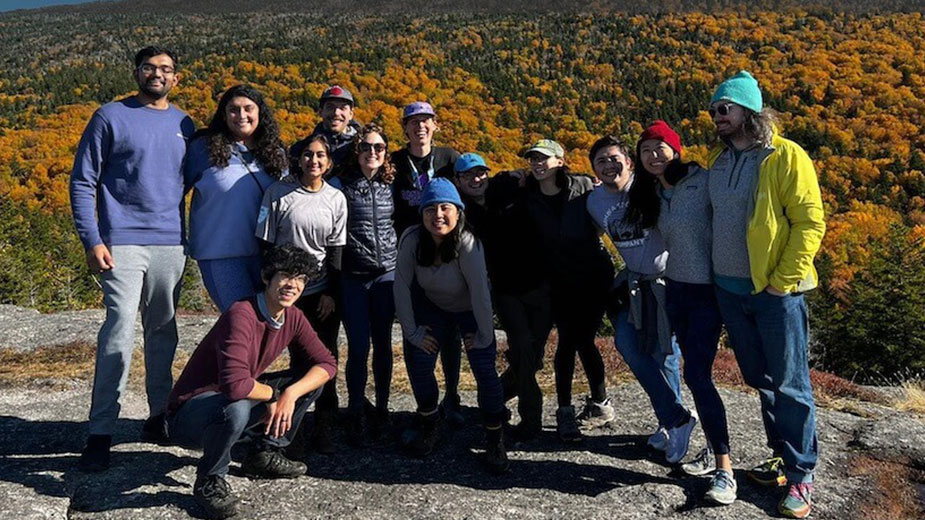
Enhanced Learning: after participating in specialized workshops, skills sessions, and presentations the primary care program retreat protects time to come together as a community outside of the classroom.
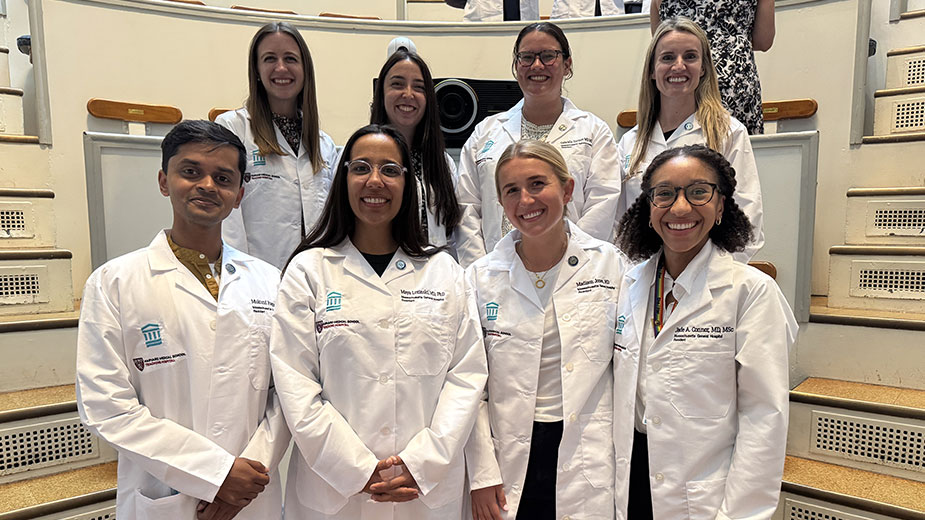
2025-2026 primary care residents.
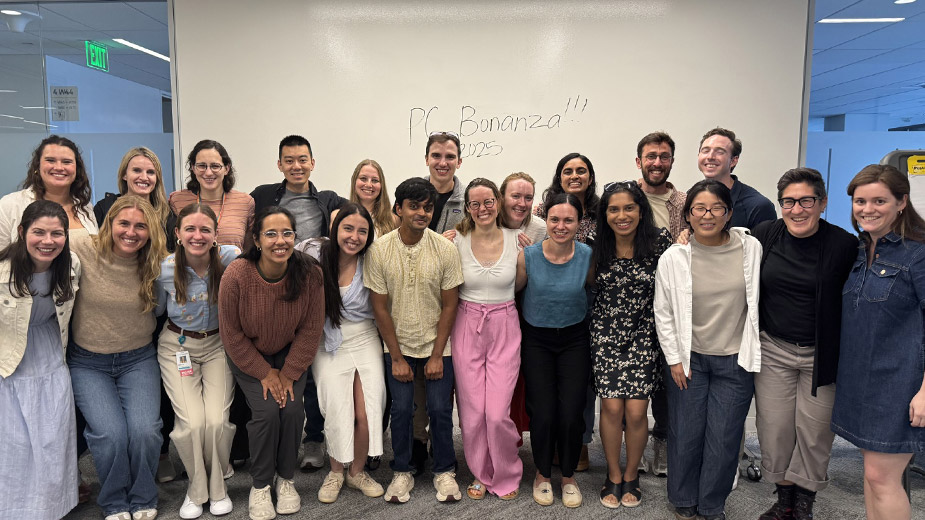
2025 primary care fall retreat.
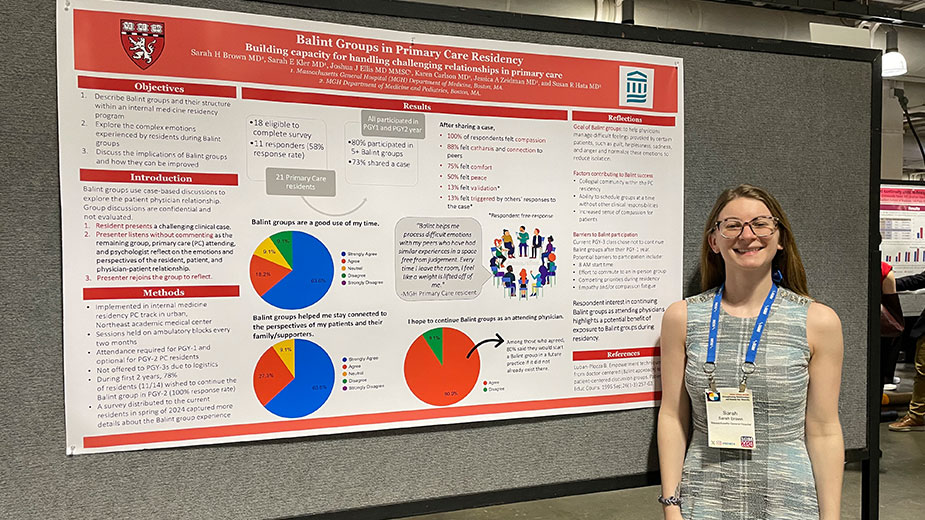
A primary care resident presenting at the Society of General Internal Medicine (SGIM) 2024.
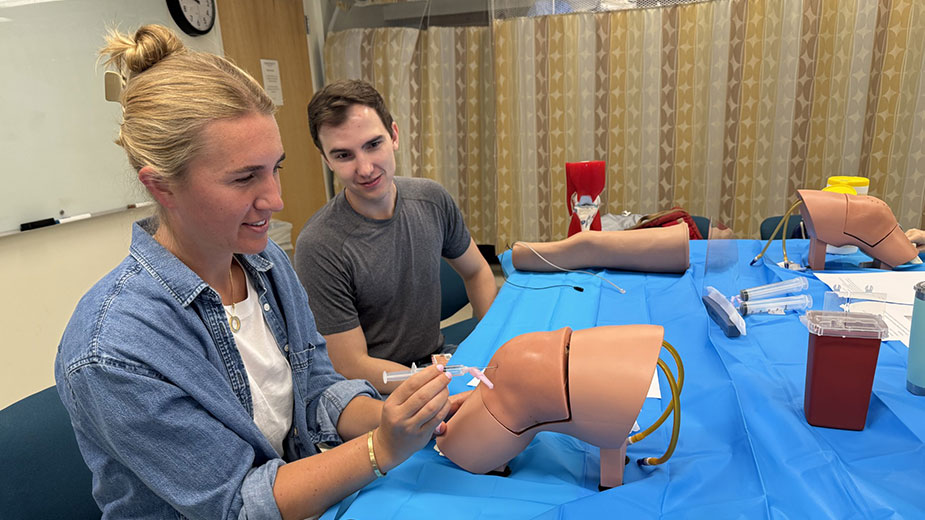
Residents practicing joint aspiration for knee during an ambulatory procedure workshop.
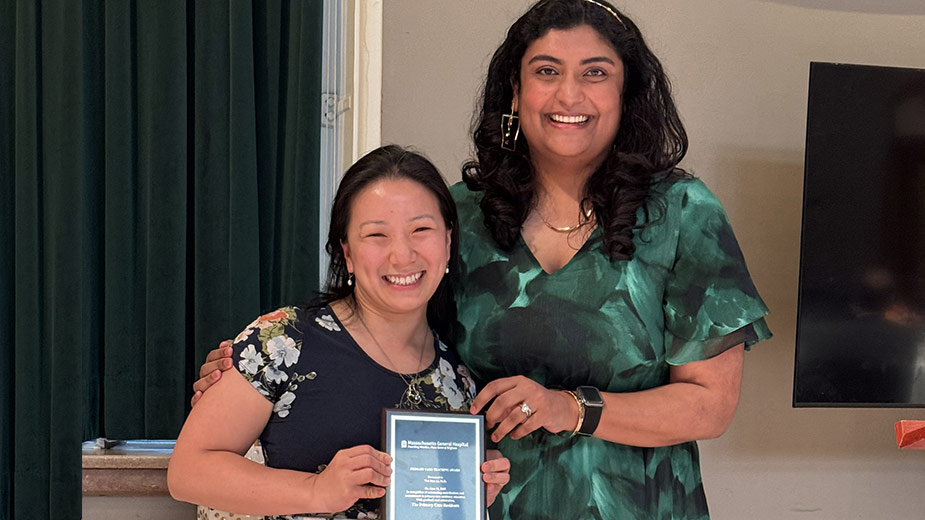
Celebrating a primary care teaching award.
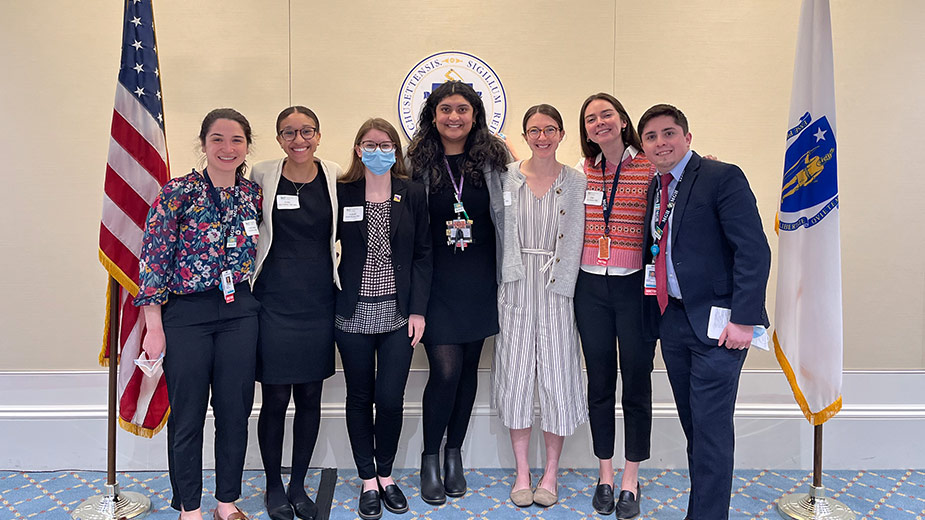
Junior primary care residents at the MA State House for ACP Advocacy Day.

A New England tradition: fruit picking during Bonanza Block.

Primary care residents building community.
Internal Medicine Residency Program
For more than 75 years, our program has brought experience, commitment and a rigorous and balanced approach to the training.
Internal Medicine Division
We have more than 400 physicians who are involved in clinical practice, teaching and training, research, innovation and scholarship.
